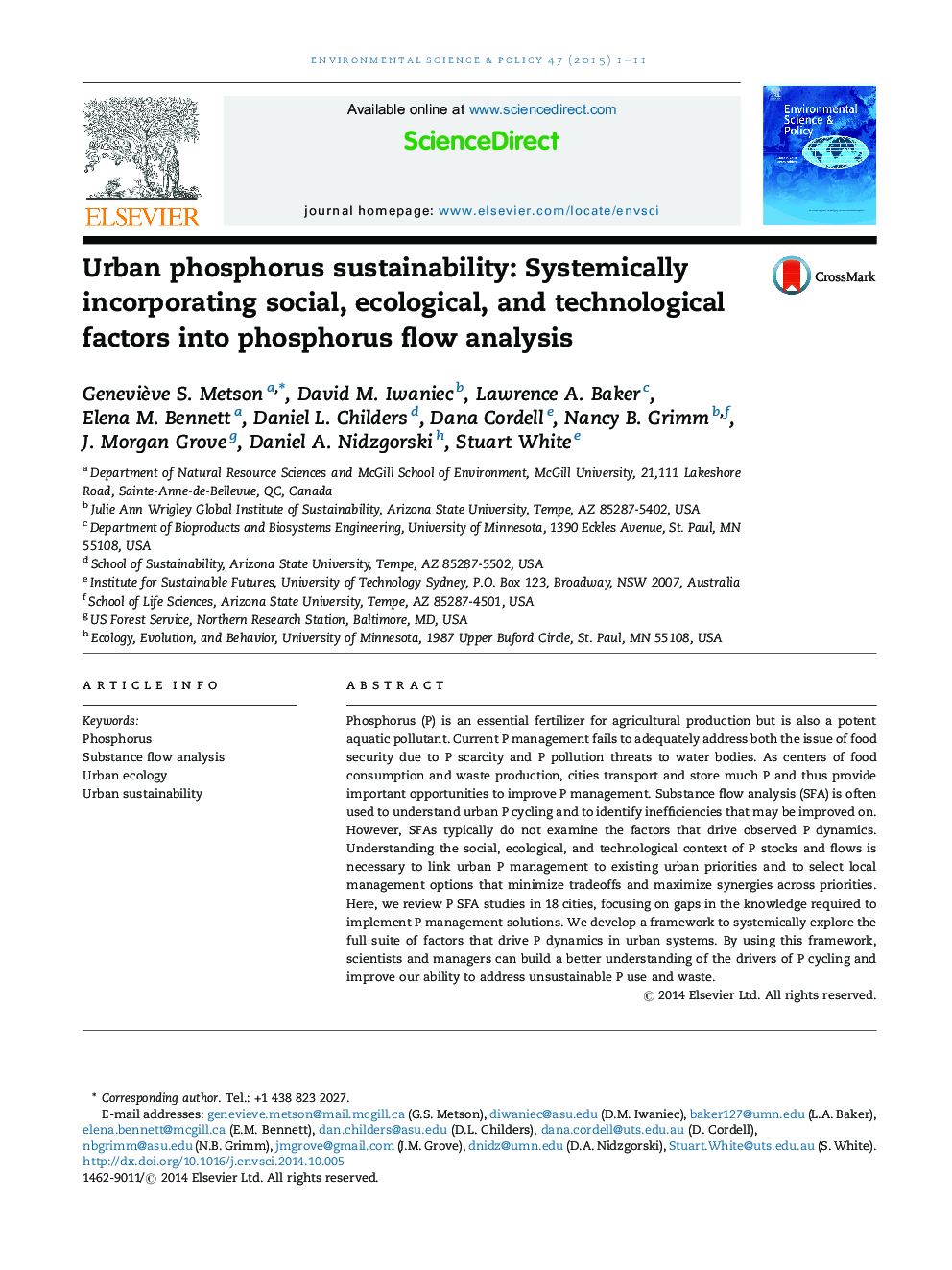| Article ID | Journal | Published Year | Pages | File Type |
|---|---|---|---|---|
| 7467514 | Environmental Science & Policy | 2015 | 11 Pages |
Abstract
Phosphorus (P) is an essential fertilizer for agricultural production but is also a potent aquatic pollutant. Current P management fails to adequately address both the issue of food security due to P scarcity and P pollution threats to water bodies. As centers of food consumption and waste production, cities transport and store much P and thus provide important opportunities to improve P management. Substance flow analysis (SFA) is often used to understand urban P cycling and to identify inefficiencies that may be improved on. However, SFAs typically do not examine the factors that drive observed P dynamics. Understanding the social, ecological, and technological context of P stocks and flows is necessary to link urban P management to existing urban priorities and to select local management options that minimize tradeoffs and maximize synergies across priorities. Here, we review P SFA studies in 18 cities, focusing on gaps in the knowledge required to implement P management solutions. We develop a framework to systemically explore the full suite of factors that drive P dynamics in urban systems. By using this framework, scientists and managers can build a better understanding of the drivers of P cycling and improve our ability to address unsustainable P use and waste.
Related Topics
Physical Sciences and Engineering
Energy
Renewable Energy, Sustainability and the Environment
Authors
Geneviève S. Metson, David M. Iwaniec, Lawrence A. Baker, Elena M. Bennett, Daniel L. Childers, Dana Cordell, Nancy B. Grimm, J. Morgan Grove, Daniel A. Nidzgorski, Stuart White,
